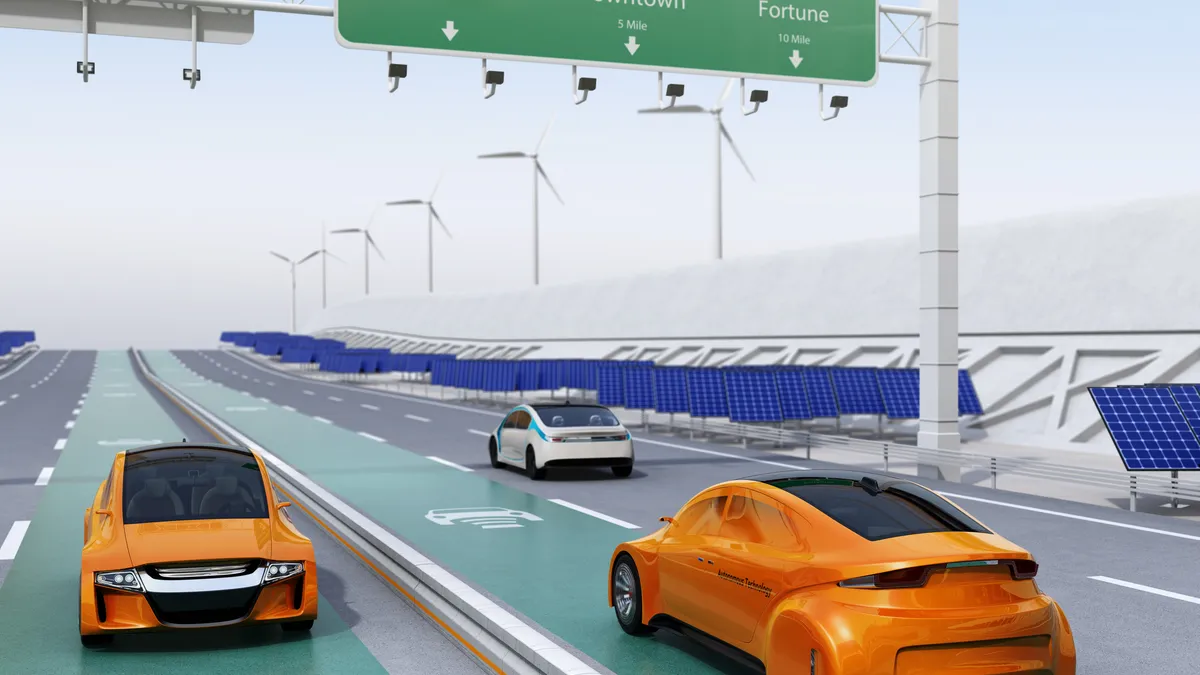ChargePoint Holdings, an EV charging network company, and Stem, a utility- and industrial-scale battery storage and software company, announced Tuesday they’ll accelerate EV charging and battery storage for highway corridor fast-charging networks.
By combining EV charging with battery storage and AI-driven energy management, operators of EV sites can benefit from lower operating costs and added energy resiliency, the companies said.
"An integrated ChargePoint and Stem solution broadens the number of sites that can support high-speed charging economically at scale," said Pasquale Romano, ChargePoint’s CEO.
ChargePoint will analyze EV charging demand at sites where DC chargers will be installed and assess their eligibility for financial incentives as part of the National Electric Vehicle Infrastructure program. The Bipartisan infrastructure law authorizes the Federal Highway Administration’s NEVI Formula Program to provide funding to states to strategically deploy EV charging stations and establish an interconnected network for data collection, access and reliability.
Funding is available for up to 80% of eligible project costs, including the acquisition, installation and network connection of EV charging stations, their operation and maintenance and charging station data sharing.
The joint project has the potential to help reduce an EV site host’s utility bills by cutting demand charges that can be a large part of EV charging operating costs, the companies said. EV site hosts can reduce or avoid those costs by using battery storage to reduce demand peaks.
The companies say they will integrate ChargePoint’s charging platform, Express Plus, with Stem’s on-site energy storage and its Athena platform that integrates solar, storage and EV charging management.
Express Plus can deliver up to 500 kW a port, depending on the configuration, and is designed to scale to meet future demand as EV adoption and vehicle capability grow.
The Bipartisan infrastructure law earmarks $7.5 billion for highway and community charging. Funding programs such as NEVI are intended to help accelerate the buildout of infrastructure required to support the widespread adoption of EVs.
Last September, the Biden administration announced EV infrastructure deployment plans for the 50 states; Washington, D.C.; and Puerto Rico. The states have access to more than $1.5 billion to build EV chargers over about 75,000 miles of highways.












